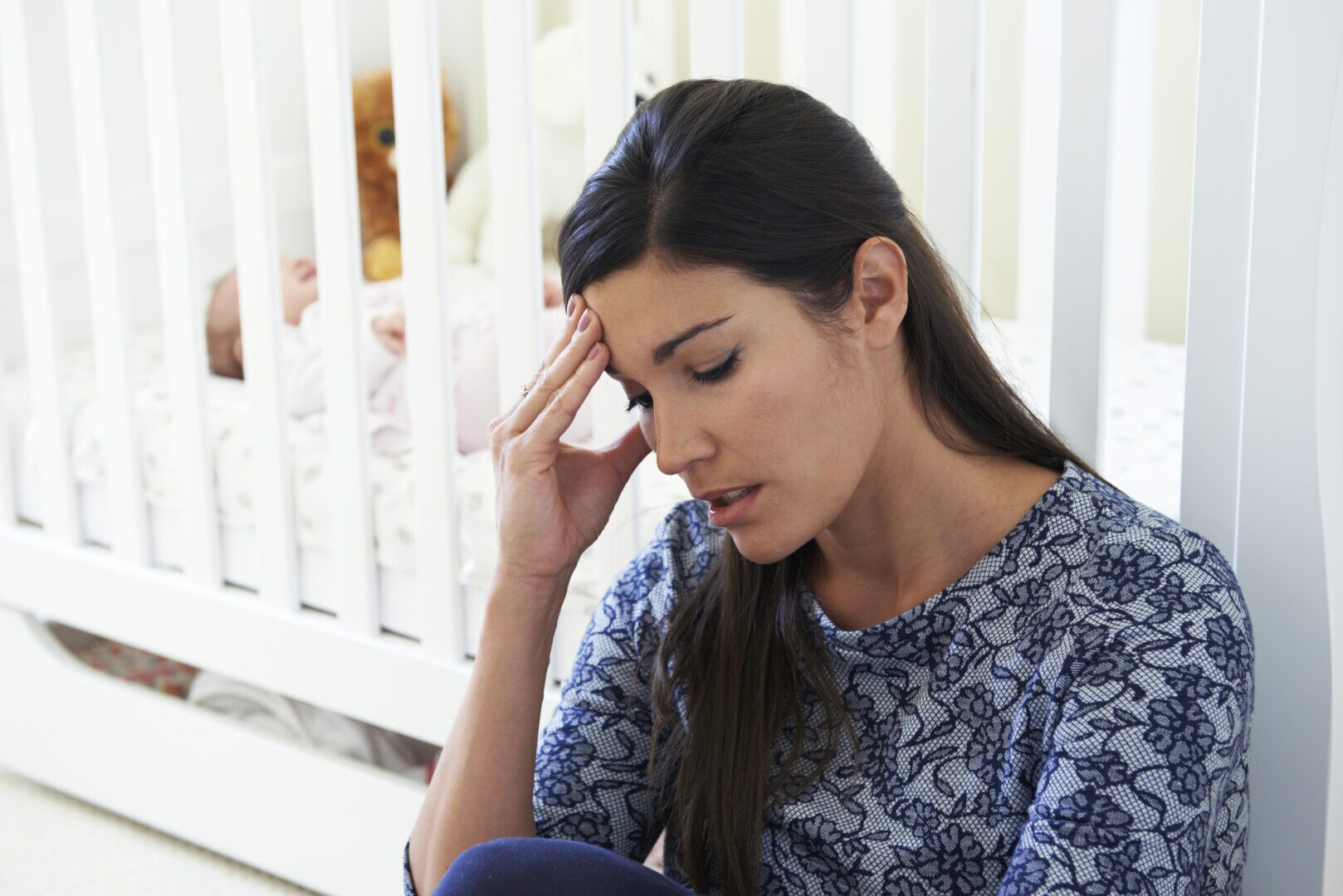You might have heard of postpartum anxiety or postpartum depression, but what about postpartum psychosis? As a new mother, you might believe that your maternal instincts will take over in all situations and that you will always protect and take care of your baby, no matter the circumstances. But this is not the case for women who suffer from the spectrum of postpartum disorders — and it’s not their fault. Although it’s rare, psychosis does occur and needs to be talked about. If you feel that you exhibit any of the warning signs, you need to reach out to your doctor right away.
Here are the key things you need to know about the disorder:
- What Is Postpartum Psychosis?
Postpartum psychosis is a severe psychiatric illness which can show up suddenly in a new mother, usually within two weeks of giving birth. To some degree, you could describe it as a severe bipolar episode, but it can be accompanied by the woman hearing voices telling her to harm herself or her baby.
- How Common Is It?
Fortunately, this serious disorder is not that common. Postpartum psychosis is rare and occurs in 1 out of 1000 women in the general population but is more common in women with histories of bipolar disorder.
If you’ve suffered from a psychiatric disorder in the past, you should let your doctors know this when you are pregnant, because you might be at a higher risk for postpartum mood disorders. However, for women without a previous history, there are often no warning signs prior to the onset of postpartum symptoms.
- What Are the Symptoms?
If, after your baby is born, you are unable to sleep for extended periods (that is, even when the baby is sleeping or someone else is caring for it, you’re tired and it is a regular sleep time for you), this could trigger psychosis. This can also be a symptom of psychosis, along with increasing restlessness and agitation.
Other symptoms of postpartum psychosis can include:
- Thoughts or ideas that other people would consider odd or unusual, such as hearing voices or seeing things that others do not see
- Confused thinking patterns
- Bouts of paranoia
- Withdrawn and bizarre behaviour
- Beginning to handle your baby differently
If the onset of the symptoms are sudden — or within the first few days or weeks of the delivery — this could signal psychosis.
- What Should Partners Do?
It’s important for partners to know the symptoms of psychosis so they can know if and when they should seek help. After all, the woman suffering from this illness might not realise what’s happening or might not be able to articulate that she feels strange. In addition, psychosis is characterised as a loss or impairment in reality testing. As such, the woman may not appreciate that her thinking is odd or bizarre, and it becomes critically important for her partner or other family members to get urgent treatment. If the partner thinks anything is strange or amiss, it’s time to get help.
- How Can You Get Help?
Don’t wait to see if things get better on their own. Psychosis is a medical emergency and the patient should receive emergency medical attention. Both the patient and/or her partner (if the women is unable to recognise that there is an issue) should immediately contact the obstetrical provider or a mental health provider if one is available. In severe cases or if an immediate appointment isn’t possible, the patient should go to A & E immediately.
- What Treatments Are Available?
Psychosis is a rare but potentially devastating condition for a mother and her children. It is associated with maternal suicide and infanticide, so it is considered a medical emergency. Various types of treatments are available, including therapy and antidepressant medications. In order to achieve the best results, the treatment plan should be based on the individual patient and her specific needs.
For a mother suffering with postpartum psychosis, the period after birth can be a scary time for her and her partner. Don’t hesitate to get help. Proper and intense treatment — including medication and therapy — will help new mothers recover and kept them and their babies safe. But, above all, a good support system is vital.



